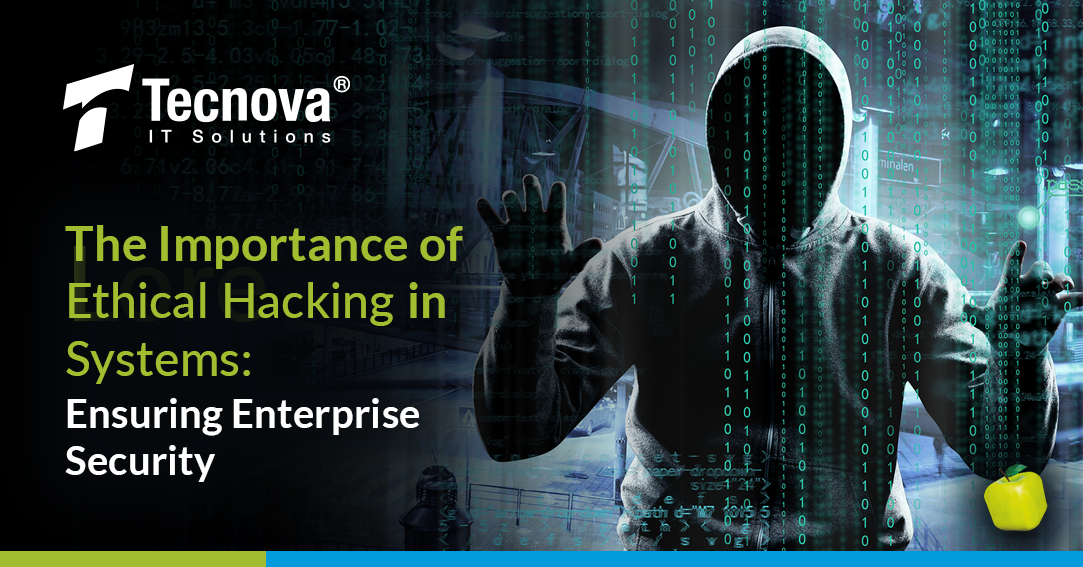The Importance of Ethical Hacking in Systems: Ensuring Enterprise Security

In today’s world, where technology and information are critical assets for any business, cybersecurity has become a paramount concern. IT managers play a key role in protecting systems and sensitive data against increasingly sophisticated threats. An essential strategy in this regard is “ethical hacking.” As an expert in cybersecurity, this article explores the importance of conducting ethical hacking in enterprise systems and the fundamental steps to ensure effective practices.
What is Ethical Hacking?
Ethical Hacking is a legal and ethical technique that involves simulating cyber-attacks on systems, applications, and networks to identify and rectify vulnerabilities before malicious hackers exploit them. It is an authorized practice performed within the organization to strengthen security and safeguard digital assets.

The Importance of Ethical Hacking in Business
1. Preventing Threats and Security Breaches
Regular ethical hacking tests help anticipate potential attacks and close security gaps before attackers can exploit them. This proactive approach ensures business continuity and safeguards confidential information.
2. Real Insight into Security Level
Ethical hacking provides a realistic view of the security level of systems and applications. Controlled simulations evaluate the defensive capabilities of the digital infrastructure, allowing informed corrective and preventive measures.
3. Compliance and Legal Requirements
In many industries, compliance with regulations is mandatory. Ethical hacking ensures that the company meets legal requirements and maintains its reputation by avoiding breaches and penalties.
4. Preserving Corporate Reputation
A cyber-attack can have a devastating impact on a company’s reputation. Demonstrating proactivity in searching for and mitigating vulnerabilities shows clients and partners that the organization takes information security seriously.
5. Ensuring Business Continuity
Cyber-attacks can disrupt business operations and lead to significant losses. Ethical hacking helps prevent such scenarios, ensuring business continuity in an increasingly hostile digital environment.
Key Steps to Conduct Ethical Hacking
Below are the crucial steps to effectively carry out an ethical hacking assessment:
1. Define the Scope of Ethical Hacking
Clearly establish the objectives and limits of ethical hacking before commencing the assessment. Define which systems, applications, or networks will be evaluated and what approaches are permitted, ensuring all stakeholders are well-informed and consent to the activity.
2. Information Gathering and Reconnaissance
At this stage, the ethical hacking team collects information about the company’s digital environment, including infrastructure, technologies used, and possible entry points. Using specialized tools and search techniques, a clear picture of targets and potential vulnerabilities is obtained.
3. Vulnerability Identification
Ethical hacking involves using advanced techniques to identify vulnerabilities and potential points of exploitation. Ethical hackers apply penetration testing, code analysis, and other methodologies to discover security flaws.
4. Evaluation and Controlled Exploitation
After identifying vulnerabilities, an assessment is made of their impact and exploitability. This process must be controlled to avoid collateral damage and ensure the integrity of the systems.
5. Documentation and Report Creation
At the conclusion of ethical hacking tests, it is essential to document all findings and create a detailed report. This report should include a clear description of the vulnerabilities, their risk level, and recommendations for remediation.
6. Remediation and Enhancements
The next step involves addressing the identified vulnerabilities and implementing necessary fixes. This phase is crucial to strengthen security and protect systems against future attacks.
7. Ongoing Monitoring and Maintenance
Cybersecurity is an ongoing process. After conducting ethical hacking and applying fixes, continuous monitoring of the digital infrastructure is essential, along with regular updates to maintain security over time.
Conclusion
Ethical hacking is a powerful tool for protecting enterprise systems and ensuring cyber resilience. As IT managers, understanding the importance of this practice and conducting regular assessments is crucial. If you wish to delve deeper into this subject or require guidance on conducting ethical hacking in your organization, feel free to contact us. Our team of experts is ready to assist you in fortifying the security of your digital assets and protecting your business continuity in an ever-evolving digital landscape.








